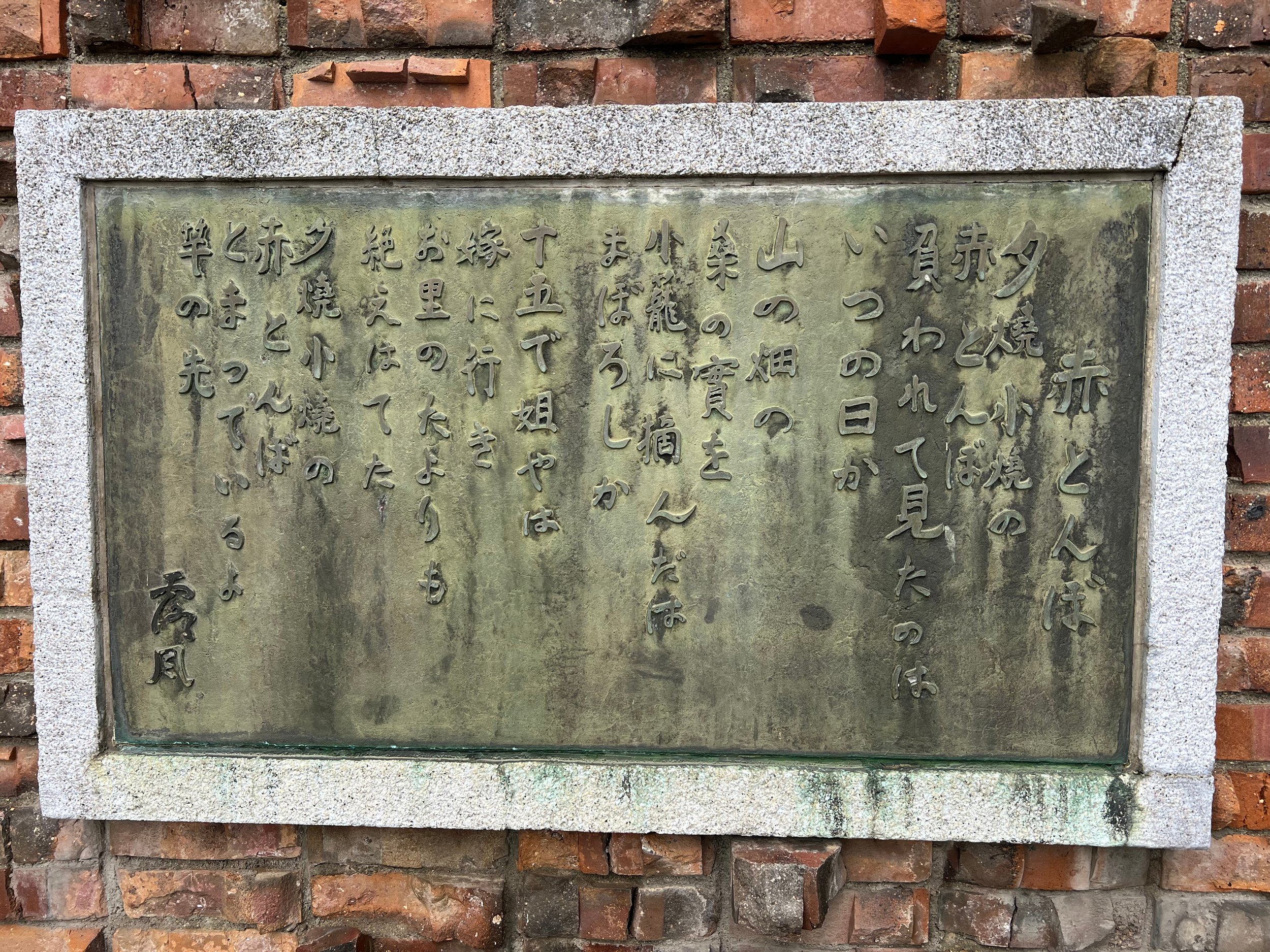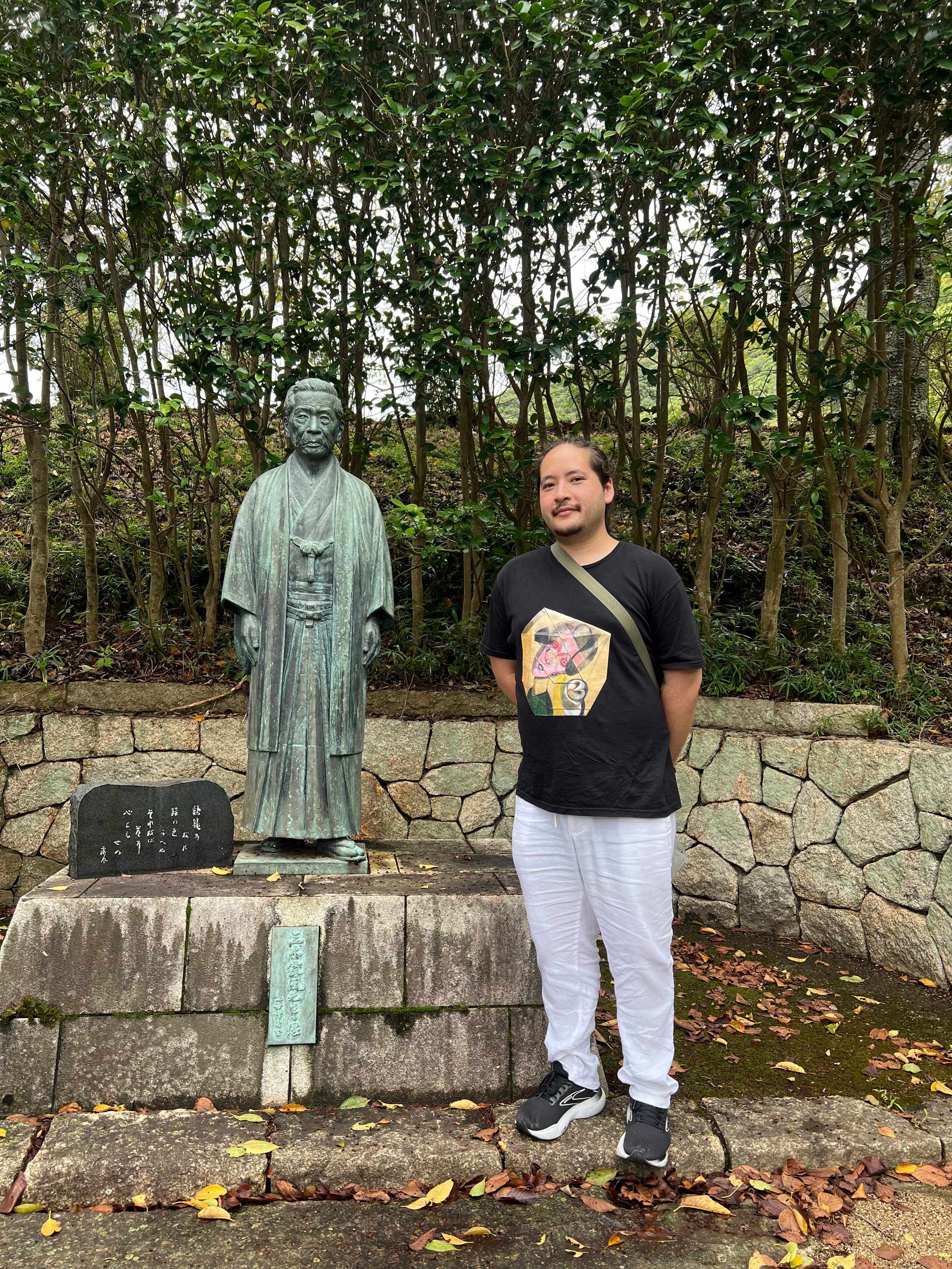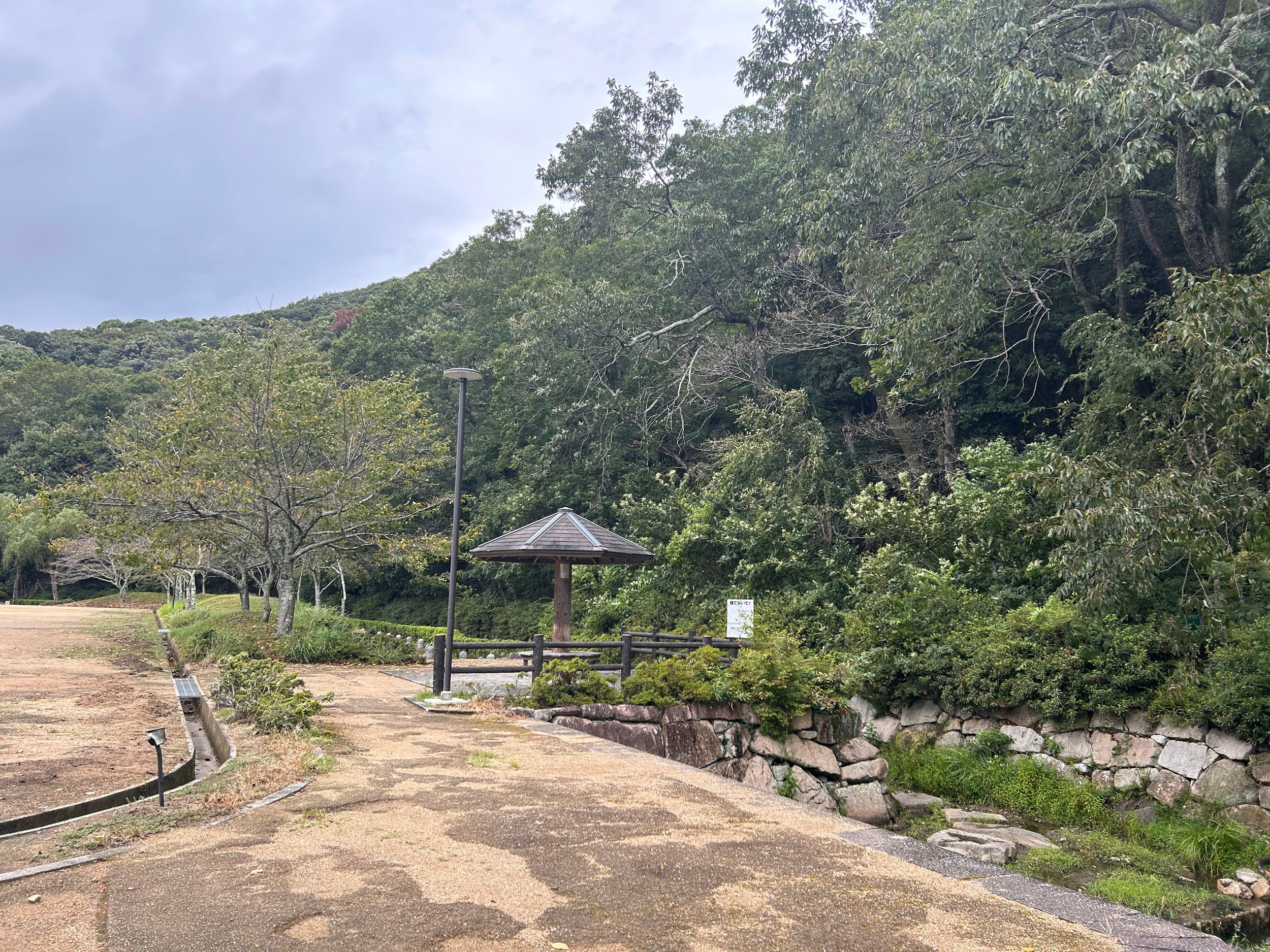In his latest project, "Jiji's Song," Jasper Shogo Dutz draws inspiration from his dual heritage. Combining traditional Japanese harmonies and contemporary jazz improvisation, Jasper’s sound emerges as a testament to his musical diversity. His compositions evoke nostalgia intertwined with innovation, honoring his heritage while forging new paths in modern jazz. "Jiji's Song," titled to pay homage to his Grandfather, demonstrates the power of cross-cultural dialogue and artistic expression.
Throughout the album, several songs pay tribute to Japanese musical modes, often referred to as pentatonic scales in Western Music theory. These are referred to as the “Yo” and “In” scales. The former is the primary basis for one of the most famous Japanese folk songs known globally as “Aka Tombo” which can be translated to “Red Dragonfly” in English. Jasper felt that opening the album with the folk song would only be appropriate to serve as a mood-setter for the proceeding tracks. Below is a sample of the Yo scale from which the melody of “Aka Tombo” is derived.
After programming the music on the album with “Akatombo” at it’s core, Jasper decided to do further research about the song only to discover that the poet who composed the original lyrics to the song came from the same prefecture as Jasper’s family. He made it a personal quest to visit.





Having gone on a personal deep dive to the Aka Tombo memorial, Jasper felt equipped and inspired to compose original music with the intent of honoring both his family’s home prefecture as well as the memory of his grandfather whom he called “Jiji” growing up. The albums’ title track “Jiji’s Song” contains the essence of Aka Tombo combined with elements of jazz, inherent to Jasper’s own musical training as well as his experience as a Japanese American. At the end of the track, a recording of his grandmother, Masae Hirose(b. 1935) can be heard reciting the poem “Aka Tombo” over Jasper playing the melody to “Jiji’s Song” on his clarinet, bringing the album full circle.
Jiji’s Song Album Cover by Kaoru Mansour, Jasper’s Mother, featuring a painting of Yoshinobu Hirose aka “Jiji.”
Jaspers creative process continues to be driven by aesthetic and imagery that he finds inspiring. Sonically, the album is heavily inspired by the often minimal yet evocative orchestration heard in traditional Japanese folk music often utilizing little more than a sole melodic voice accompanied by almost ambient percussion such as a woodblock. The track “Wani no Uta” or “Alligator’s Song” demonstrates this.
In addition to the influence of Japanese folk music, Jasper, who is a life-long professional jazz musician, tastefully incorporates jazz harmony to accompany the folkish melodies resulting in the emergence of a unique, cross-cultural aesthetic. This can be heard in tracks such as “Okami no Uta” or “Wolf’s Song”
Album Credits
“Jiji’s Song” released September 1, 2024 available on all streaming platforms:
Jasper Shogo Dutz - Clarinet, Bass Clarinet, Flute, Alto Flute
Chris "Stomp" Garriga - Drums & Percussion
Featuring:
Yuma Uesaka - Bass Clarinet(6), Contrabass Clarinet(7,9)
Brandon Choi - Trumpet (6)
Ben Rosenblum - Piano (4,7)
Jeremy Corren - Piano (1,5,8)
Marty Kenney - Upright Bass (4,6)
Kaoru Mansour - Voice (1)
Masae Hirose - Voice, Spoken Word (1, 8)
Engineered, mixed and mastered by Peter Karl
Produced by Sun Yoo
Art by Kaoru Mansour
Listen to and support the full album on Bandcamp below or >Click Here< to find on all streaming platforms
